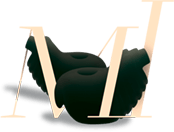Kilku Warak’a
Ñawinchay, mayqin simipi: ![]() Runasimi
Runasimi castellano
Kilku Warak’a (pseudonym for Andrés Alencastre Gutiérrez, 1909–1984 Canas, Cusco). Recognized as one of the most noteworthy of Quechua language poets, he is primarily known for his three, monolingual poetry collections (Taki parwa, 1952 Taki ruru, 1964, Yawar para, 1972), although Warak’a also penned various plays (El pongo Killkito, Los arrieros, Ch’allakuy, among others). José María Arguedas praised Taki Parwa as “the most important contribution to Quechua literature since the eighteenth century … the culmination of a [transitional] process from popular Quechua artistic practices to forms of written literature.” Even when Warak’a dedicates his verses to commonplace subjects of Quechua poetry (Lake Titicaca, maternal figures, the puma, or Illapa, the mythological Incan god of thunder, lightning bolts and lightning flashes), the images painted by the poet are innovative, even seventy years after the initial publication of Taki parwa. Like the whiskers of the poetic subject of his famous poem “Puma”, Kilku Warak’a’s verses still illuminate, “In the sun they dazzle, glittering” (“Intitaraq llakllacinki”). We include below, two moving poems from the Taki parwa collection “Mama qucha” (“Mother Lake”) and “P’uncayniykipi” (“On Your Day”) —they are read, and have been translated from the Quechua by the Cusqueñan poet Odi Gonzales. We include as well, a link to an audio recording from 1958 which was taped at the Peruvian-Northamerican Cultural Institute of Cusco and which is archived in Washington D.C. at the Library of Congress. In the recording, Kilku Warak’a/Andrés Alencastre reads eight of his poems in runasimi, followed by versions of the poems in Spanish, translated by the poet. Warak’a begins by reading his lengthy, prize winning poem “Illimani”.
Author's books
Mamaquca
Titiqaqa mama quca1
hanaq pacaq waqayni qispi umiña
kusi sunqun qhawaykuyki ñawiri hunt’ata
kawsayniytaqmi wayt’arin sumaq sani unuykipi
Sapa p’uncay illariqtinmi
Inti tayta muc’arisunki
quri siminpa yawrayninpitaq
muyuykuqniyki urqukunantin
pukaq’umirraq saniq’illuraq
imasumaqta t’ikaykacanki
Cawpi p’uncay cayamuqtintaq
lirpuman tukun unuyki
rit’i c’ulluyuq apukunaq
uyanku qhawakunanpaq
C’anpiq tutaq p’anpaykusqantaq
yana lliklla hina mast’arikunki
khutu wayrawan aytiykukuspa;
t’uqyaq qhaqyataq lliplliyninwan
q’inqupallayta awarin
k’upacasqa unuykipi
P’uncayniykipi
Awsankatiq k’awcinmantan1
rit’ita asiricispan
quri inri wac’irimun;
tukuy urkun rikc’arimun
tukuy t’ikan llanllarimun
p’uncayniyki cayamuqtin
Ñuqataqmi anca kusisqa
hatun sunqu napaykuyki,
punamantan apamuyki
huq llawt’uta mat’iykipaq
ichumanta awasqata
yawarniywan minisqata
Tuta pukllaq quyllurmantan
asiyninta p’itimuni
simiykiman curanaypaq;
yuraq ñukñu rit’imantan
waqayninta suwamuni
sunquykita qarpanaypaq
Kawsay sipas t’ika mukmu
amapuni ñawiykipi
wiqi unu rurucuncu
amapuni sunquykipi
llaki phuyu tiyacuncu
kawsay kusi wiñay wata





